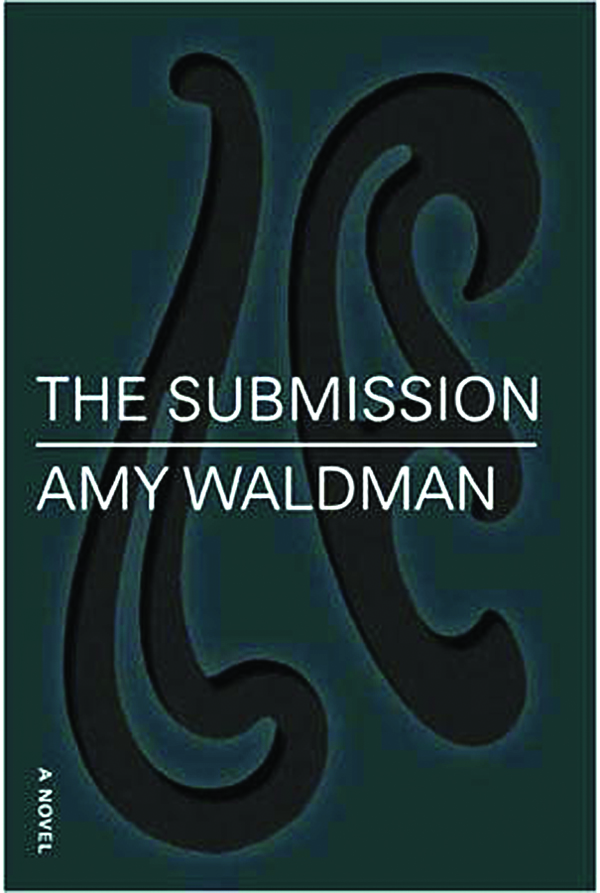In 1981, 21 year old architect Maya Lin was dragged ungainly into the public spotlight, after she was selected to design the Vietnam Veterans Memorial in Washington D.C. Lin was selected through a public – and anonymous – competition; her Chinese-American ancestry, revealed only after the judging process was completed, sat uneasily with those still nursing complicated associations with the American adventure in south-east Asia.
Lin’s unhappy experience heavily informs The Submission, Amy Waldeman’s debut novel that transplants the political and social angst of the early 80s to a painfully contemporary setting. The setting is New York, rather than Washington; the project is a memorial garden in memory of the 3,000 odd victims of the 9/11 attacks, rather than the 67,000 who fell in ‘Nam. But beyond these contextual differences, the polemics and prejudices remain largely the same.
Waldeman – previously a reporter for the New York Times, and a national correspondent for The Atlantic – takes her cues from the polarized, largely unreflective political discourse of the last decade. When Mohammed – “Mo to my friends” – is selected through open competition to design the tribute, it poses an immediate and uncomfortable test to the jury, a collection of the great and good, the socially connected and the liberal intelligentsia of the city. All – well, most – disown personal prejudicial intent, but all immediately recognise how “others” might have problems with the decision. As these things happen, the decision is leaked to the press before the jury have worked out a suitable means of damage limitation. And suddenly Mohammed, by no means deracinated but nonetheless largely indifferent to the tenets of his faith, finds himself in the centre of a political maelstrom.
One would be tempted to consider The Submission within the framework of farce, were it not for the contemporary background that it – coincidentally or not – echoes. In the summer of 2010, New York was riven by debate about the appropriateness of the Park 51 Muslim community centre – the so called “Ground Zero Mosque” – a few blocks from the World Trade Centre. It is fair that very few people emerged from that intemperate debacle with any glory. In similar vein, The Submission introduces a cast of characters with personal interests that cloud the prospect of objectivity. Paul, the patrician head of the judging body, was selected as a safe pair of hands; but with one eye on his social legacy, he is paralysed by indecision. Claire, representative of the bereaved families on the jury, drapes herself in the noblesse oblige of her late husband, but never fully succeeds in excising her pride from the equation. Sean, the younger brother of a fireman hero, is all testosterone and unchecked emotion, coupled with the lingering acknowledgement that his personal failings will always stand out against his brother’s heroism. Then there is Asma, the illiterate widow of a Bangladeshi illegal and mother of his unborn child, who wishes to mourn in private but indadvertedly becomes a pawn in a bigger game.
In a sense, Waldeman’s characterizations take the sting out of the story, with the principals often lacking nuance and subtlety. Even Mo, whose initial diffidence evolves into an ill-defined – but not unexpected – anger with everything around him, presents at times as something of a composite, put together for the purpose of serving Waldeman’s story rather than the other way round.
Having said that, the narrative benefits from its multiple perspectives. The Submission always keeps its eye on the big picture, a cautionary reminder that we do have to find a way to get along with one another. An awkward situation rapidly degenerates into a test of wills; each side is determined to have its own way, and Mo, caught in the middle, must fight against becoming a cypher for another’s cause – even if he is not sure where he stands himself. Compromise need not be a dirty word, Waldeman seems to suggest, and she is probably right. It is an concept sorely missing from the public discourse today.
The Submission, by Amy Waldeman
Farrar, Straus and Giroux, pp 320, $26.00
ISBN 978 037427 1565






